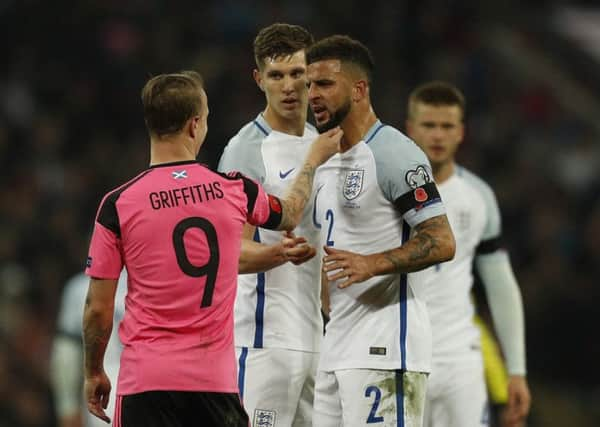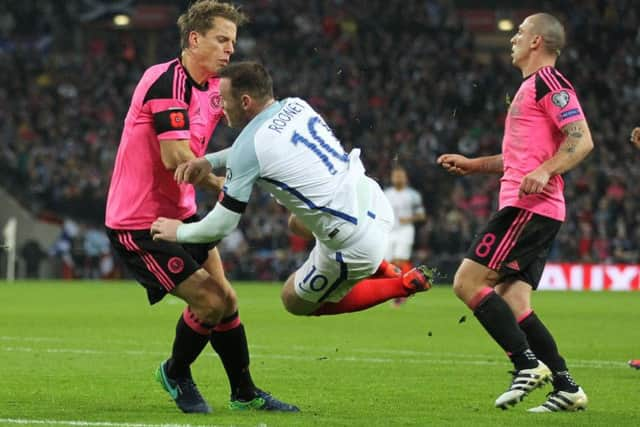FIFA set to perform U-turn on wearing of poppies


Scotland, England, Northern Ireland, and Wales were all fined by FIFA for ignoring warnings not to commemorate Armistice Day during their World Cup qualifiers last November.
FIFA’s stance - based on a strict interpretation of its laws against the use of personal, political or religious slogans or symbols - sparked widespread condemnation in Britain, with Prime Minister Theresa May calling it ‘utterly outrageous’ in Parliament.
Advertisement
Hide AdAdvertisement
Hide Ad

But now, 10 months after a FIFA disciplinary panel dished out those fines, football’s world governing body has sent its member associations new guidance on law four, the section of the game’s rule book on what players can wear.
In the document, FIFA says certain ‘initiatives’ may appear on players’ kits, along with the usual name, number, team crest and so on.
The document does not provide much clarity on what these ‘initiatives’ might be but says they cannot breach law 12, which refers to foul play and abusive language, and restates law four’s existing criteria which rule out wearing ‘personal’ or ‘religious...slogans, statements or images’.
This leaves ‘political’, which FIFA admits ‘is less clear’, although it obviously rules out slogans and symbols related to political parties and governments.


It adds: “When commemorating a significant national or international event, the sensibilities of the opposing team (including its supporters) and the general public should be carefully considered.”
What this means in practice, is that Scotland, or any other team that wants to wear poppies on their shirts to mark Armistice Day, can do so, providing they get their opponents’ permission and inform the organisers of the match.
Advertisement
Hide AdAdvertisement
Hide AdIf England seal qualification for next summer’s World Cup in their next two games in early October, they are set to play Germany in a friendly at Wembley in November and it is understood they have already been given permission by the German FA to wear poppies during this match.
Many will see this as a victory for common sense, particularly as the FA was willing to go to the Court of Arbitration for Sport to contest its £35,000 fine.
As it happens, the fine was never paid and now never will be.
It is understood that the smaller fines levied to the Scottish Football Association, Football Association of Wales and Irish Football Association were also not paid and will now simply be forgotten.
Having previously allowed England to wear poppies in a November friendly against Spain, FIFA’s crackdown last year certainly took the home nations by surprise.
Prior to the games, which included Scotland facing England at Wembley, FIFA general secretary Fatma Samoura wrote to say no ‘exceptions’ would be made to the law, as ‘Britain is not only country that has been suffering from the result of war’.
This view was repeated a month later, when the fines were dished out, by the disciplinary panel’s Claudio Sulser who said: “In the stadium and on the pitch, there is only room for sport, nothing else.”